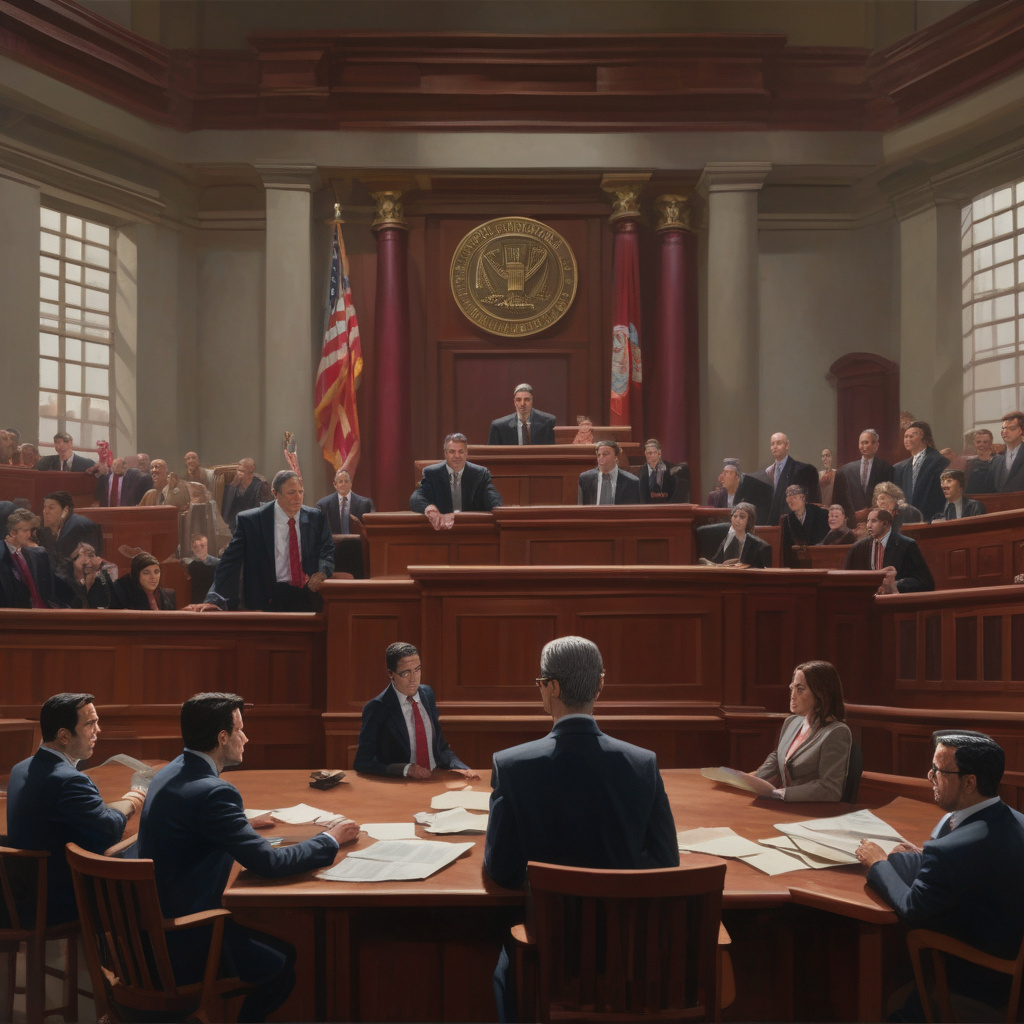Lawyers Sanctioned After AI-Generated Cases Found False
In a shocking turn of events, the legal world was rocked by the revelation that fake court decisions generated by artificial intelligence almost made their way into judicial orders. This unprecedented incident has raised serious concerns about the use of AI in legal proceedings and has prompted a swift response from legal authorities.
The case in question involved a group of lawyers who had been utilizing AI technology to generate fake court decisions in their favor. These AI-generated documents were so convincing that they managed to pass through several layers of review before their true nature was discovered. If it hadn’t been for the keen eye of a diligent clerk, these false decisions could have had far-reaching consequences.
The ramifications of this discovery were immediate and severe. The lawyers involved were swiftly sanctioned by the bar association, with their licenses to practice law revoked indefinitely. This serves as a stark warning to legal professionals who may be tempted to cut corners or manipulate the system for their own gain.
The incident also sparked a broader conversation about the role of AI in the legal field. While AI technology has the potential to streamline processes, increase efficiency, and improve outcomes, it also raises important ethical questions. How can we ensure that AI is being used responsibly and ethically in the practice of law? What safeguards need to be put in place to prevent abuse and manipulation?
One of the key takeaways from this incident is the critical importance of human oversight in conjunction with AI technology. While AI can be a powerful tool, it is not infallible. Human judgment, critical thinking, and ethical considerations are essential in ensuring that AI is used in a responsible and transparent manner.
Furthermore, this case underscores the need for ongoing education and training for legal professionals on the ethical use of AI. As AI continues to play an increasingly prominent role in the practice of law, lawyers must be equipped with the knowledge and skills to navigate this evolving landscape effectively.
Ultimately, the swift and decisive action taken against the lawyers involved in this scandal sends a clear message: unethical behavior will not be tolerated in the legal profession. As technology continues to advance and reshape the practice of law, upholding the highest ethical standards must remain a top priority for all legal professionals.
In conclusion, the incident of lawyers using AI-generated fake court decisions serves as a cautionary tale for the legal community. It highlights the importance of ethical considerations, human oversight, and ongoing education in the responsible use of AI in the practice of law. By learning from this incident and taking proactive measures to prevent similar occurrences in the future, the legal profession can uphold its integrity and ensure justice is served.
AI, Legal, Ethics, Technology, Oversight











